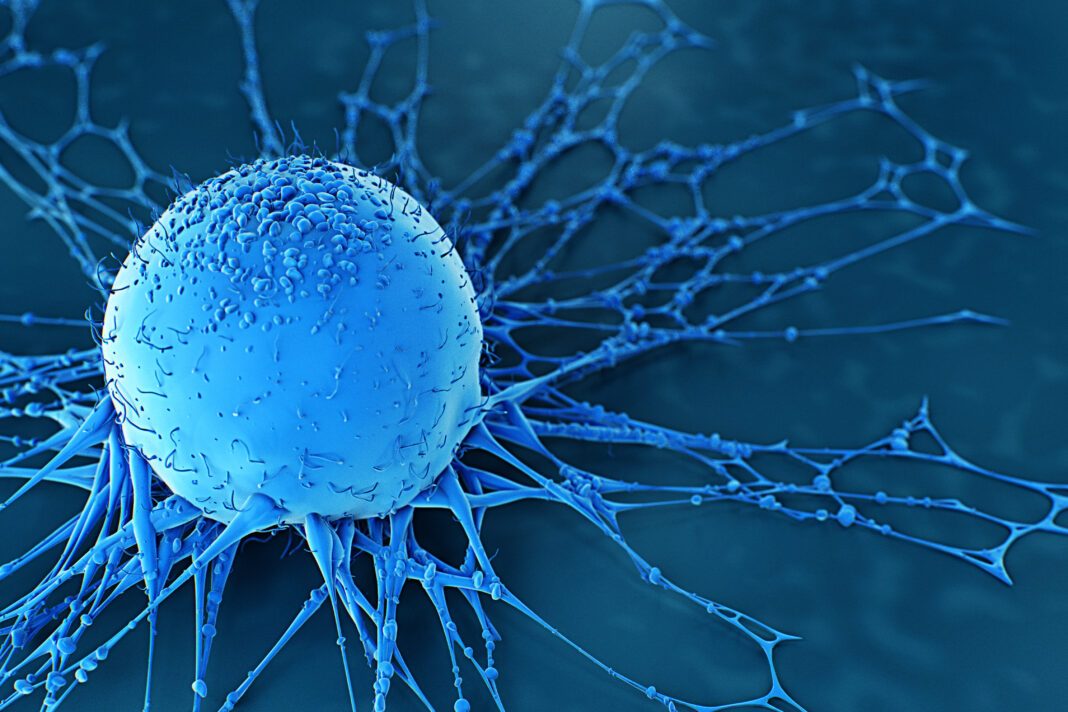Researchers from the German Cancer Research Center (DKFZ) and from Heidelberg University’s Medical Faculty Mannheim report they have tested a neoantigen-specific transgenic immune cell therapy for malignant brain tumors for the first time using an experimental model in mice.
Their findings are published in the journal Clinical Cancer Research in a paper titled, “T cell receptor therapy targeting mutant capicua transcriptional repressor in experimental gliomas.”
“Gliomas are intrinsic brain tumors with a high degree of constitutive and acquired resistance to standard therapeutic modalities such as radiotherapy and alkylating chemotherapy,” the researchers wrote. “Glioma subtypes are recognized by characteristic mutations. Some of these characteristic mutations have shown to generate immunogenic neoepitopes suitable for targeted immunotherapy. Using peptide-based ELISpot assays, we screened for potential recurrent glioma neoepitopes in MHC-humanized mice.”
Malignant gliomas are incurable brain tumors that spread in the brain and cannot be completely removed by surgery. “Gliomas are very difficult to treat, and the lack of suitable target structures is a considerable challenge for developing immunotherapies,” explained Lukas Bunse, MD, PhD, an immunologist at the DKFZ and a doctor at University Hospital Mannheim (UMM).
The researchers have demonstrated for the first time that transgenic T cells targeting tumor neoepitopes can be used to treat gliomas. Tumor neoepitopes arise as a result of genetic mutations in cancer cells that lead to structural changes in the proteins produced.
Using a prediction model, the researchers identified a segment of the CIC protein (capicua transcriptional repressor) as a target structure for T cell attacks. Mice vaccinated with the CIC neoepitope developed a population of T helper cells that showed a high level of activation in response to the vaccine peptide.
“Here we have shown for the first time in an experimental model that a neoantigen-specific TCR-transgenic cell therapy can be effective against gliomas,” explained Michael Kilian, PhD, postdoctoral researcher, DKFZ and first author of the study. “These kinds of neoepitope-specific TCR-transgenic T cells could be used in the future in cancer patients who cannot be treated using CAR T cells,” he added.
“Our work suggests that TCR-transgenic T cells can also be used to treat patients with brain tumors,” remarked Michael Platten, MD, head of the Clinical Cooperation Unit Neuroimmunology and Brain Tumor Immunology at the DKFZ and medical director of Mannheim University Hospital’s department of neurology. In collaboration with Wolfgang Wick, MD, medical director of the medical faculty of Heidelberg’s department of neurology, Platten and the team of neurooncologists hope to use comparable approaches to refine the TCR-transgenic T cell therapy and to study it in early clinical trials.


